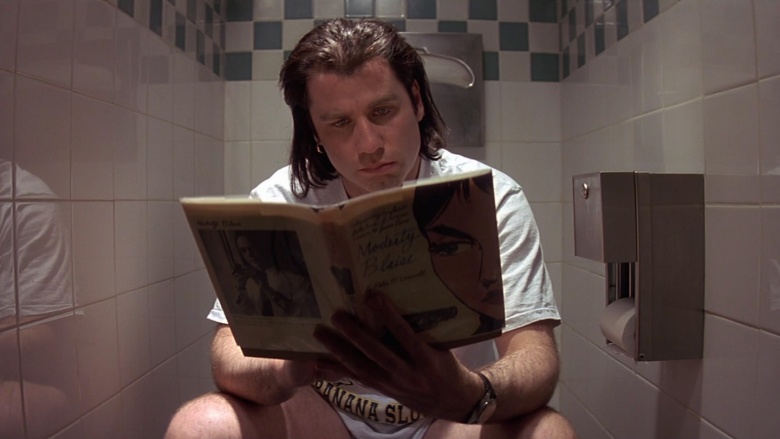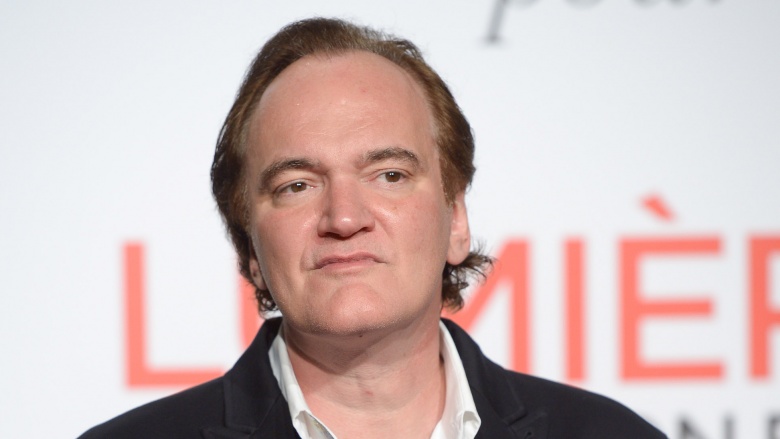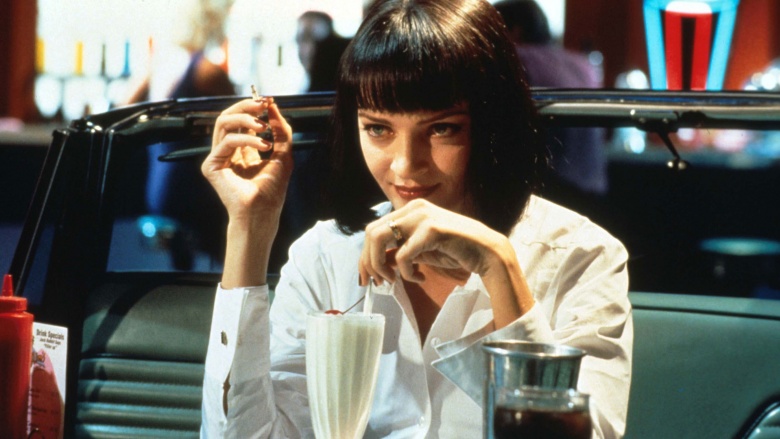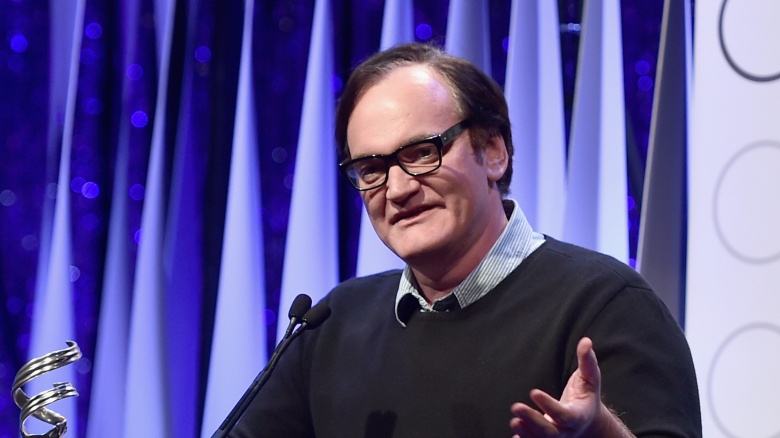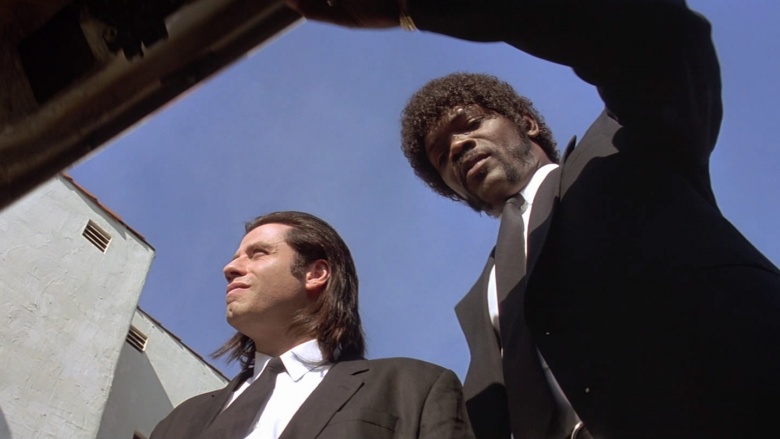Why We Never Got To See Pulp Fiction 2
Quentin Tarantino's second full-length feature (after 1992's Reservoir Dogs), Pulp Fiction obliterated all commercial expectations by earning over $200 million against a mere $8 million budget while confirming the young writer-director had a distinct and exciting new voice to offer. The film's success and genre transcendence led to many, including Tarantino himself, hoping for a follow-up film, but despite widespread interest, Pulp Fiction 2 hasn't happened. Here's why.
It would've been a prequel
As many movie buffs already know, Tarantino's films are largely connected in his own extended universe of stories, and that holds true for Reservoir Dogs and Pulp Fiction. Michael Madsen's character in Dogs, called Mr. Blonde but named Vic Vega, was meant to be the brother of John Travolta's Pulp counterpart Vincent Vega. They were supposed to be twins, in fact, and the follow-up to Pulp Fiction would've incorporated both brothers in a prequel-style caper that featured them both.
The pic, which was widely referred to as The Vega Brothers, would have featured Madsen and Travolta's characters before they met their grisly demises in the original pair of pictures. As Madsen once described the would-be story, "I'd be Vic Vegas's twin brother, [and John Travolta would] be Vincent's twin brother, and we're both on a flight from Los Angeles, having just been released from prison, and neither one of us know that we're the twin brother of the other one, and we're both on our way back to L.A. to avenge the death of our brothers."
Tarantino described it differently, saying it would be "taking place before the movies when Vin was in Amsterdam and his brother Vic, Mr. Blonde, comes and visits him and their adventures." Those are two very different concepts, of course, but in both instances, it'd have been a prequel story surrounding the two Vega siblings. Tarantino has also entertained the possibility of looking back on another of his doomed Pulp Fiction characters: Samuel L. Jackson's Jules. "I did think of a movie of Jules just walking the Earth and what happens then," he explained.
He even factored in the actors aging
In 2007, Tarantino again recounted his original interest in following up on Reservoir Dogs and Pulp Fiction (via Slashfilm), saying that he may have titled the movie Double V Vega. "It actually would have taken place during the time Vincent was in Amsterdam, when he was running one of Marcellus' clubs in Amsterdam, and Vic goes to visit him, but we're a little older now, and since they both died, it would have to be a prequel."
By then, more than a dozen years had passed since the original hit theaters, so the actors had aged quite a bit, making a prequel more difficult to pull off. But Tarantino had a backup plan. "I actually came up with a way I could have done it, even being older and dead where they all had older brothers and both of their brothers got together because the two guys died. And they wanted revenge or something like that." However, he added that they "are too old for that" and that "it's kind of unlikely now."
Tarantino's not so sequel happy
Pulp Fiction is one of several Tarantino films that have slipped through the sequel cracks. In fact, although he's talked about making several, he's never actually done so. Kill Bill: Vol. 1 and Kill Bill: Vol. 2 may have been a duology, but the films were completely linked. And while Tarantino has long teased a Kill Bill: Vol. 3 follow-up to the first two (or one, depending on how you look at it), it simply hasn't happened yet.
The same can be said for Django Unchained, which Tarantino has said he would like to follow up with a four-hour miniseries filled with unreleased material, but that hasn't happened either. A second vision of Inglourious Basterds, too, has been on the tip of Tarantino's tongue, as he's said he wrote a script called Killer Crow, featuring Christoph Waltz's Hans Landa. In other words: he's repeatedly said he's friendly to the idea of sequels, but actions (particularly lights, camera, action) speak louder than words, and so far Tarantino has shied away from actually making any.
He's got a ton of other projects in mind
Tarantino has long maintained that his filmography will be complete when it hits 10 films, and if we take him at his word, after 2015's The Hateful Eight, the writer-director has just two movies left. In addition to showing an interest in sequels to Basterds and Kill Bill, he's also hinted that he might like to adapt an Elmore Leonard western novel called Forty Lashes Less One (Leonard is the same author who wrote Rum Punch, which inspired Jackie Brown) as well as a 1930s-set gangster movie. In other words, his plate is pretty full with potential future projects, and there's another reason a Pulp sequel might never have fit into his plans.
The book may be closed on that chapter
Tarantino has admitted to working under a pattern that even he didn't recognize at first: he makes his movies in threes, and they're "symbiotically connected" to one another, three at a time. Speaking with Variety, he summed up a critic's theory regarding his work, admitting it had merit: "The third movie is usually linked by genre or some degree or another to the first two, but it almost always exists as a rebuke to the first two. It almost exists as a bastard child of the first two and is usually never as popular as the first two."
With that theory in mind, Pulp Fiction would have been the middle child in his first trilogy, with Reservoir Dogs and Jackie Brown bookending that particular collection. Tarantino himself indicated that Jackie Brown somewhat purposefully subverted the urban violence drama trend he'd been working with in his first two movies, which lends credence to the theory that it belongs in the same category as Pulp and Dogs. He then went on to do three revenge epics (Kill Bill: Vol. 1, Kill Bill: Vol. 2, and Death Proof) before moving onto historically-charged gore (Inglourious Basterds, Django Unchained, and The Hateful Eight). The movie math might not add up as to how just two more films would complete that trend (unless the Kill Bill volumes only count as one, and that long-awaited sequel to Inglourious Basterds is clumped together with the first), but if there's any weight to the theory, then Pulp's story has already been completed.

